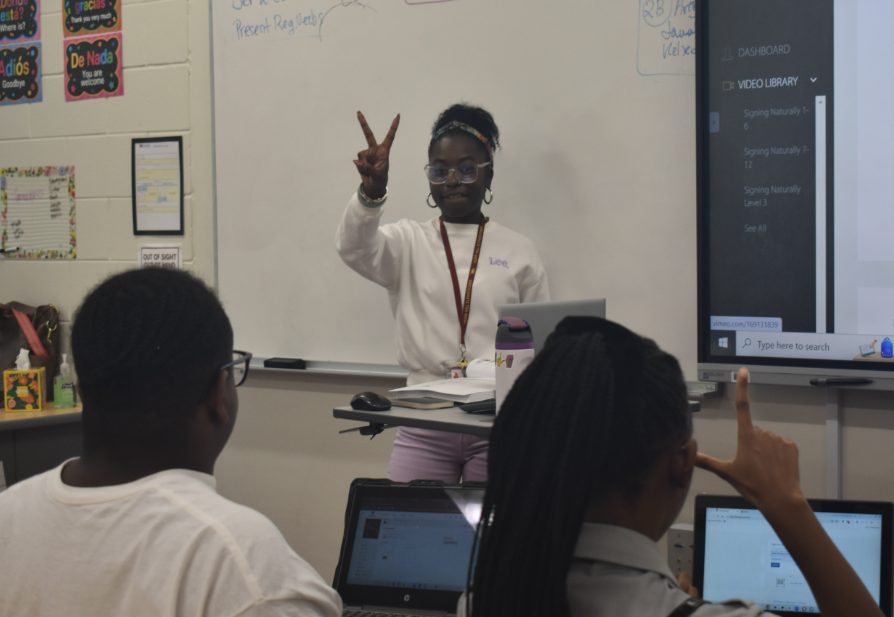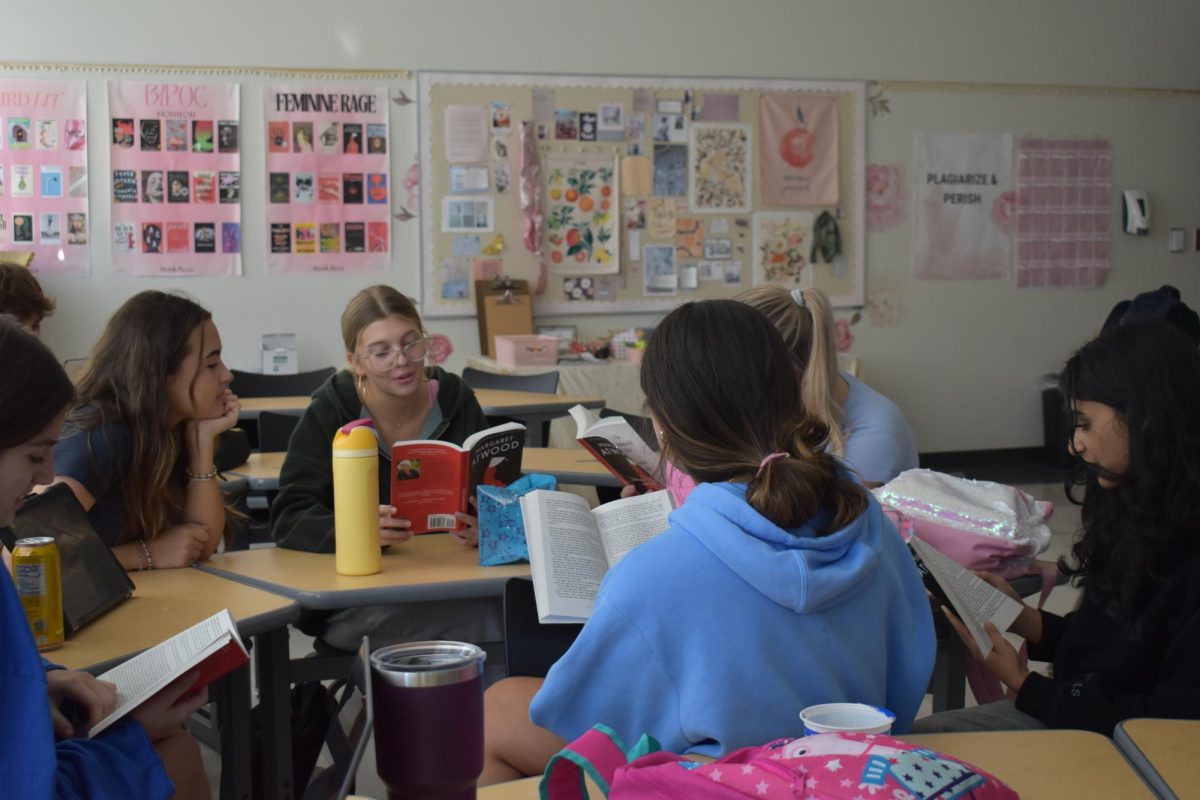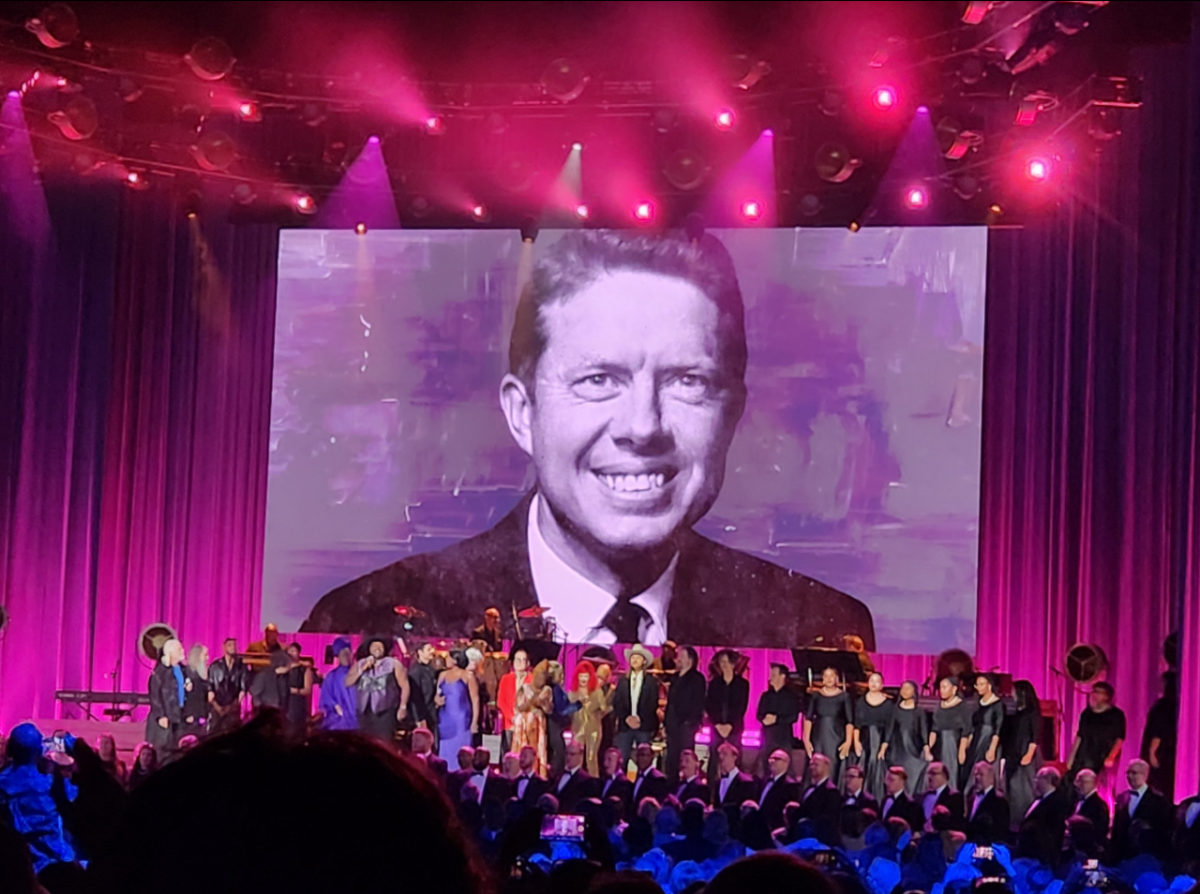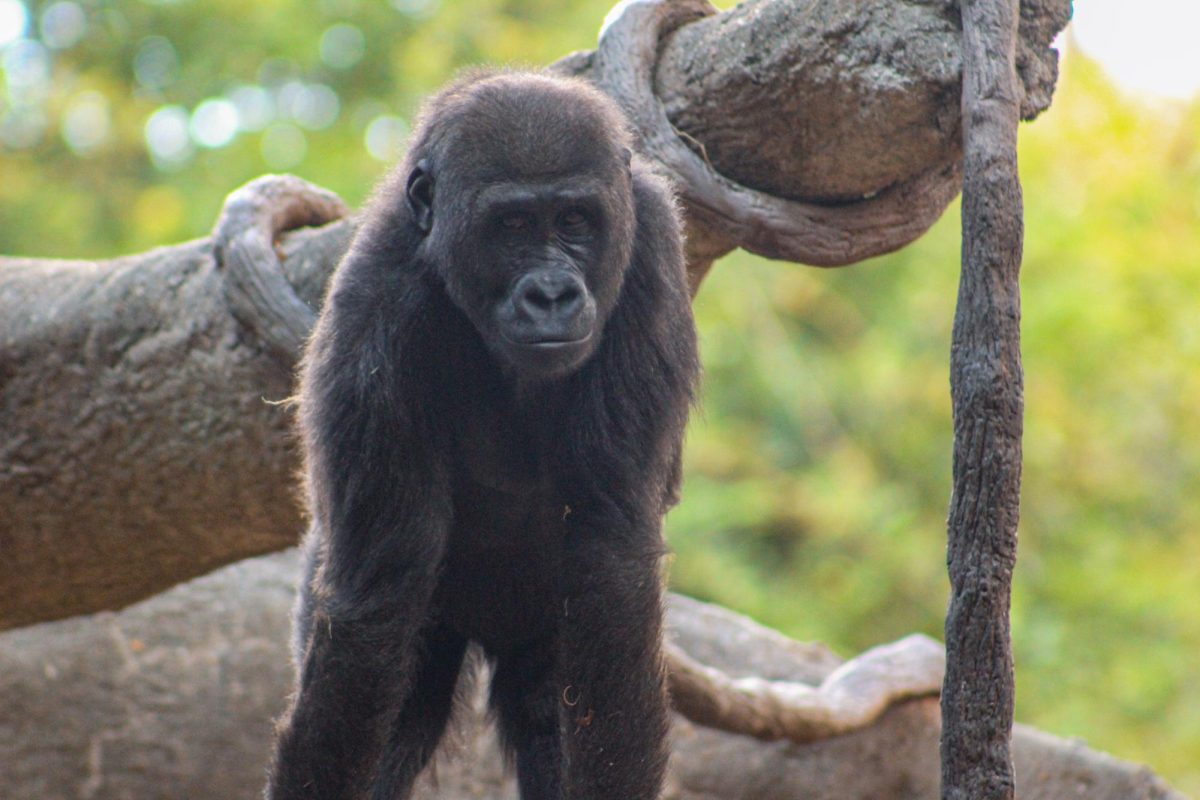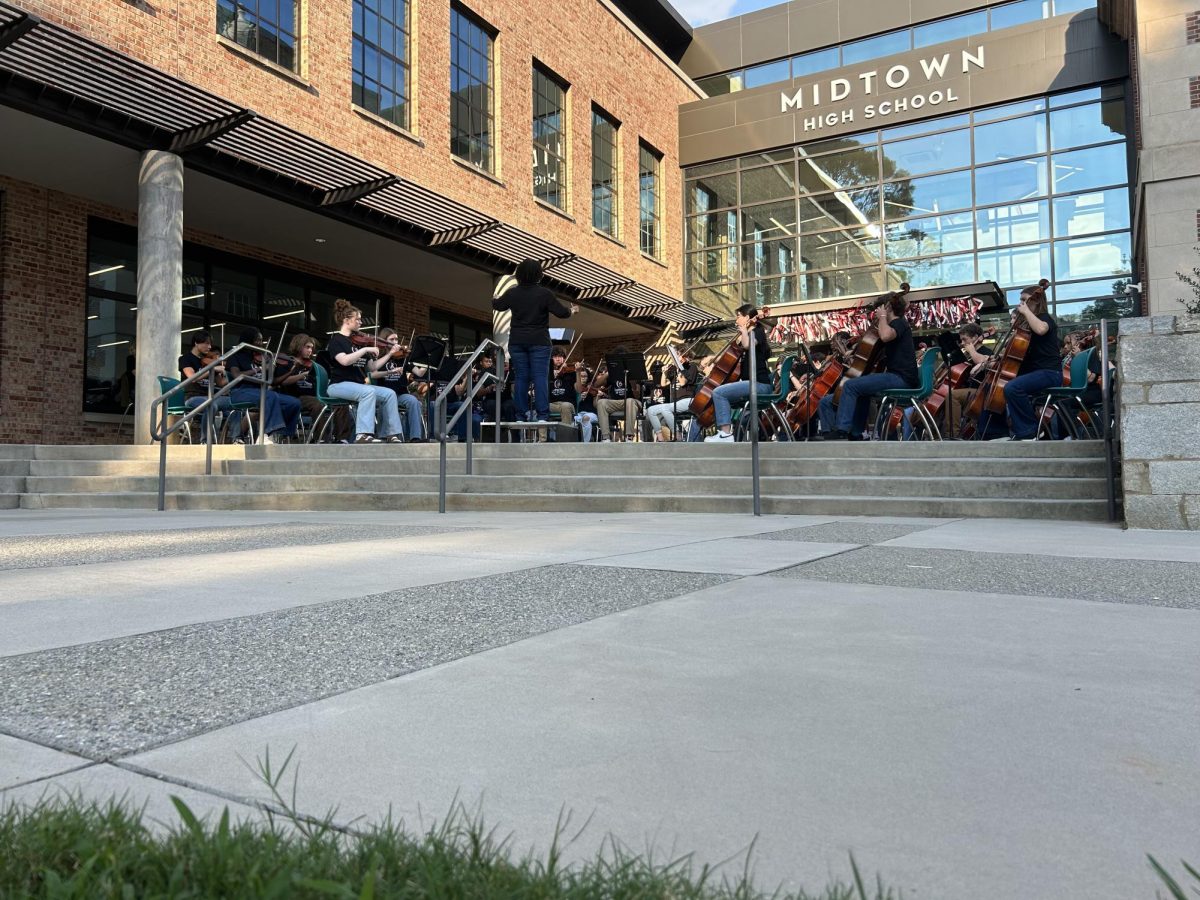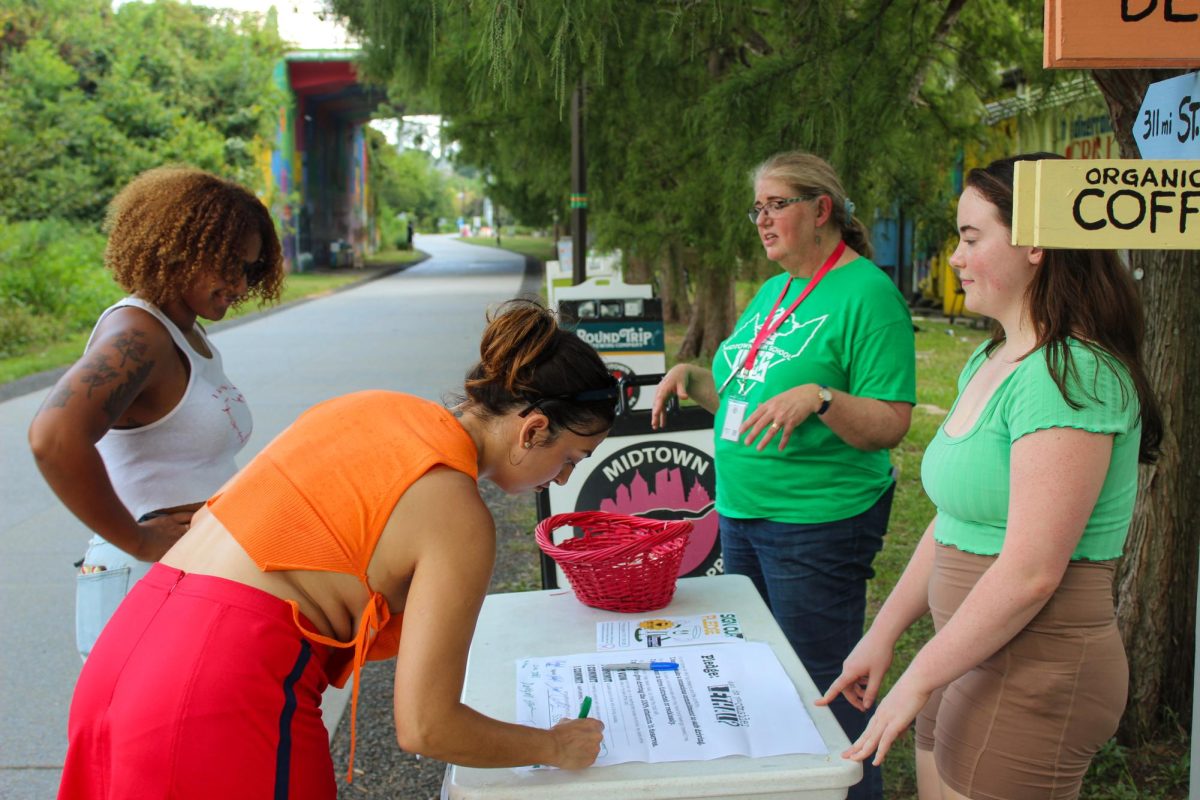It was Feb. 3, 2013, and Pierce Huff was living his dream. Seeing flashes of cameras as Super Bowl XLVII began, Huff felt the adrenaline of the cheering fans and the nervous players. While he had covered the 1997 and 2002 Super Bowls, this one felt different. Minutes after the second-half kickoff, the lights went out in the Mercedes-Benz Superdome in New Orleans and Huff went to work, changing his game plan.
“I was watching the football game, and I saw the lights start dimming,” Huff said. “I had a plan to know where things should go, but at the same time, I had to to react on my feet.”
Huff, a Grady alumnus, has covered events such as the Super Bowl and World Series and currently works as the Night/Weekend Editor at The Provo Daily Herald. Huff dreamed of being a sports journalist from the time he was 6 years old.
“In the 70s, Monday night football was a big deal,” Huff said. “They had three announcers: Frank Gifford, Howard Cosell and Don Meredith. I was a big fan of Howard Cosell, because he was not an ex jock but a journalist.”
Instead of going to his district’s high school, Mays, Huff enrolled in Grady because of its journalism program.
“He lived on the west side of town,” said Riki Bolster, who was The Southerner’s advisor between 1982 and 2001 and now volunteers in the Writing Center. “He had to take a bus and two trains just to get to Grady.”
Senior Anthony George, Southerner sports editor in 1985, advised Huff to seriously pursue an editor position on The Southerner. By 1987, Huff’s senior year, he was the editor-in-chief.

“If it was not for that moment, then it might of taken a lot longer for me to get started on my dream,” Huff said.
Seeing his tenacity, Bolster recommended Huff apply as an intern at the Atlanta Journal Constitution. Surrounded by professional journalists, Huff made connections and was inspired to bring this standard to The Southerner.
Huff ambitiously arranged interviews with professional athletes and coaches. One of Huff’s most memorable experiences was interviewing Mike Fratello, Atlanta Hawks’ head coach between 1984 and 1990.
“After practice, [Fratello] had to talk to the team,” Huff said. “That left me with 20 to 30 minutes on the floor at the Omni Coliseum, which is now Philips Arena. It was me and a couple videographers playing a one-on-one pick up game in the Omni. That was a real fun day.”
According to Bolster, Huff was a strong reporter with the potential pursue journalism professionally.
“We all knew he had a career in journalism in front of him,” said Lauren Tillman Brown, who was the news editor of the Southerner while Huff was editor-in-chief. “He was an ambitious and smart guy who was always obsessed with sports.”
While Huff admits he knew what he wanted to do at an early age, he credits the diverse atmosphere at Grady in changing his perspective.
“Growing up in that environment and meeting people of different races and backgrounds was something every kid should experience,” Huff said. “The world is not all black and it’s not all white.”
To Huff, pep rallies exemplified Grady’s inclusive spirit.
“On those particular days, we are all one Grady family rooting for the football team,” Huff said. “A lot of people cared for each other, regardless of race and multicultural backgrounds; it was symbolic of the real world. To me, that’s the stuff that could only happen at Grady.”
Although conscious of the lingering effects of the Civil Rights Movement and the Cold War, Huff and his classmates were not personally affected and lived in an optimistic time.
“We grew with the Cold War going on, but I do not remember spending a lot of time worrying about it,” Brown said. “It was a fun time to grow up.”
Graduating from Grady, Huff went on to study communications at Clark Atlanta University. While there, he was offered a position on the staff of the Macon Telegraph covering the Macon Braves minor league baseball team. In 1993, Huff moved to New Orleans to pursue his dream as sportswriter for the New Orleans Times-Picayune.

Although Huff had experience covering everything from high school sports to the NBA Finals, nothing could have prepared him for his work during Hurricane Katrina in 2005.
“We were all concerned about chronicling the city and its comeback,” Huff said. “Everyone was in the same boat though some had it worse than others.”
Although Huff was lucky, losing only a fence and tile roofs, he realized how much he took for granted.
“In the area I lived, West Bank, there was only one grocery store open,” Huff said. “You’re having to get to the store early and get in line. If you got there late, they would run out of supplies.”
Slowly, the city recovered. Neighborhoods were rebuilt. Evacuees returned. And Huff documented the the return of the New Orleans Public School System and its students.
“The storm hit a week before high school football season,” Huff said. “A year after the storm, some of the teams played despite not having a spring practice, which in was almost unheard of. The reason why the administrators let them come back was football is part of the healing process.”
Seeing students determined to return to a state of normalcy and working hard to achieve their goals, Huff was reminded of his high school self.
“The sports I liked writing about I just couldn’t play; I loved the writing,” Huff said. “On the Southerner, we laid the groundwork for future Southerner [staff] to come. Good old-fashioned journalism with the idea of storytelling and using the written word to tell a story is part of the legacy we had in the 80s.”

